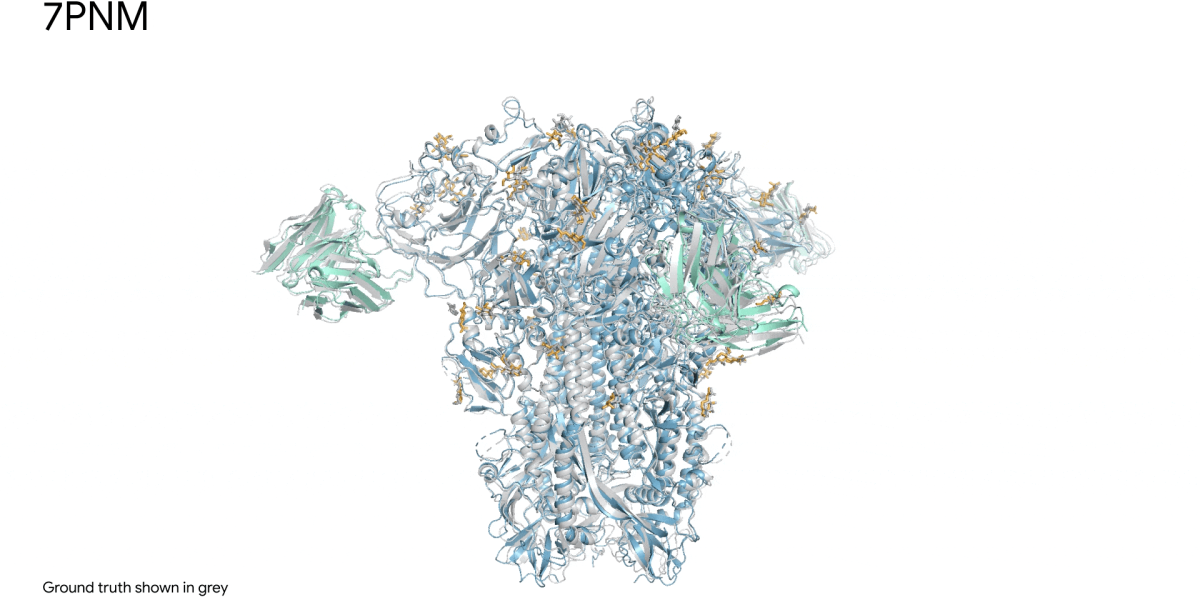
What’s new: Google DeepMind has released an improved version of its biology prediction tool, AlphaFold, that can predict the structures not only of proteins but of nearly all the elements of biological life.
How they did it: AlphaFold 3’s larger library of molecules and higher level of complexity required improvements to the underlying model architecture. So DeepMind turned to diffusion techniques, which have been steadily improving in recent years and power image and video generators. It works by training a model to start with a noisy image and then reduce that noise bit by bit until an accurate prediction emerges—a method that allows AlphaFold 3 to handle a much larger set of inputs.
Why it matters: It’s a development that could help accelerate drug discovery and other scientific research. And the tool is already being used to experiment with identifying everything from more resilient crops to new vaccines. Read the full story.
—James O’Donnell
Why EV charging needs more than Tesla
Tesla, one of the biggest electric vehicle makers in the world, laid off its entire charging team last week.
The timing of the move is baffling. We desperately need many more EV chargers to come online as quickly as possible, and Tesla was in the midst of opening its charging network to other automakers and establishing its technology as the de facto standard in the US. Now, we’re already seeing new charging sites canceled because of this move.
Casey Crownhart, our climate reporter, has dug into why the charging meltdown at Tesla could slow progress on EVs in the US overall, and ultimately, the whole situation shows why climate technology needs a whole lot more than Tesla. Read the full story.
